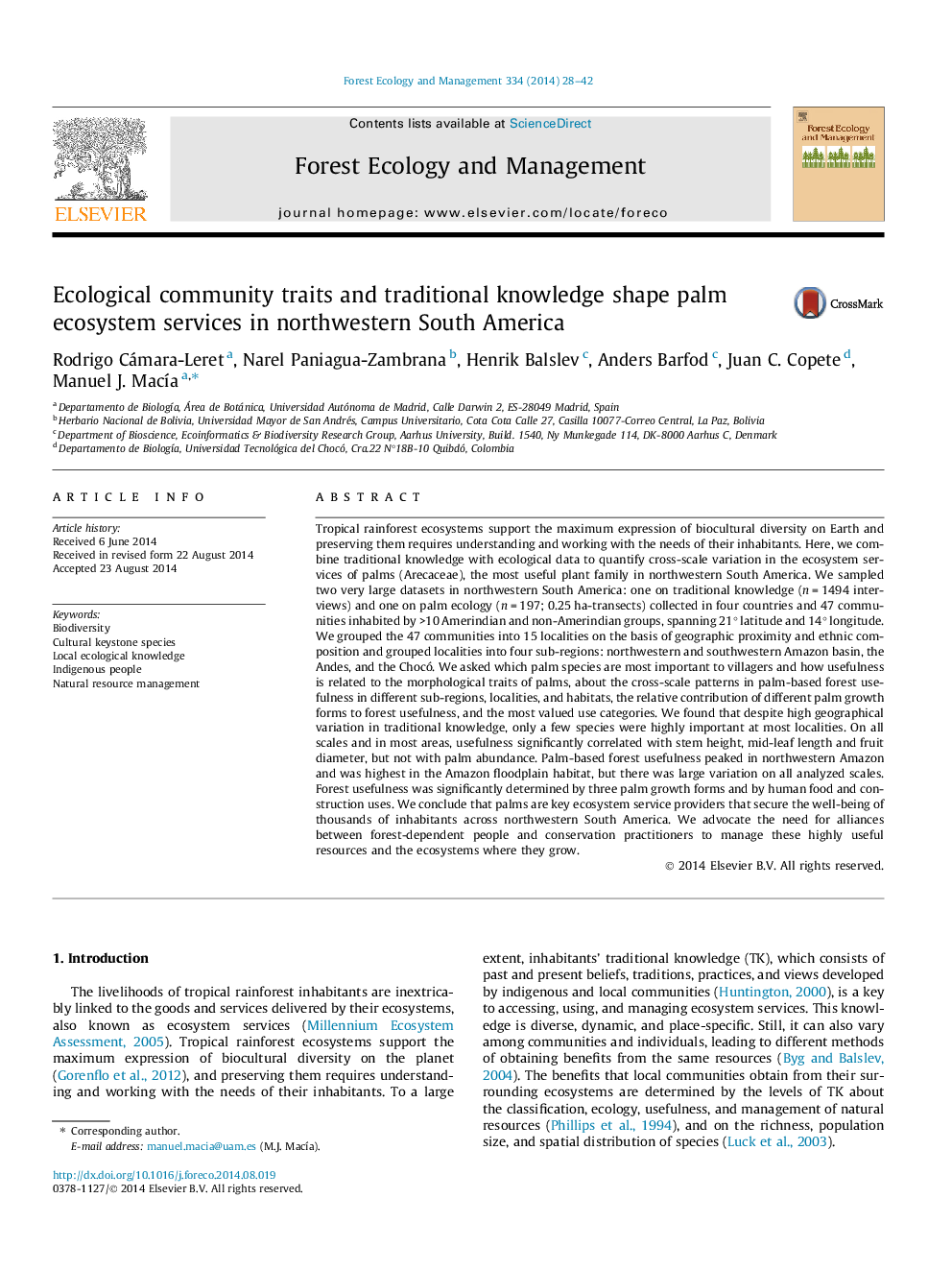| Article ID | Journal | Published Year | Pages | File Type |
|---|---|---|---|---|
| 6543081 | Forest Ecology and Management | 2014 | 15 Pages |
Abstract
Tropical rainforest ecosystems support the maximum expression of biocultural diversity on Earth and preserving them requires understanding and working with the needs of their inhabitants. Here, we combine traditional knowledge with ecological data to quantify cross-scale variation in the ecosystem services of palms (Arecaceae), the most useful plant family in northwestern South America. We sampled two very large datasets in northwestern South America: one on traditional knowledge (n = 1494 interviews) and one on palm ecology (n = 197; 0.25 ha-transects) collected in four countries and 47 communities inhabited by >10 Amerindian and non-Amerindian groups, spanning 21° latitude and 14° longitude. We grouped the 47 communities into 15 localities on the basis of geographic proximity and ethnic composition and grouped localities into four sub-regions: northwestern and southwestern Amazon basin, the Andes, and the Chocó. We asked which palm species are most important to villagers and how usefulness is related to the morphological traits of palms, about the cross-scale patterns in palm-based forest usefulness in different sub-regions, localities, and habitats, the relative contribution of different palm growth forms to forest usefulness, and the most valued use categories. We found that despite high geographical variation in traditional knowledge, only a few species were highly important at most localities. On all scales and in most areas, usefulness significantly correlated with stem height, mid-leaf length and fruit diameter, but not with palm abundance. Palm-based forest usefulness peaked in northwestern Amazon and was highest in the Amazon floodplain habitat, but there was large variation on all analyzed scales. Forest usefulness was significantly determined by three palm growth forms and by human food and construction uses. We conclude that palms are key ecosystem service providers that secure the well-being of thousands of inhabitants across northwestern South America. We advocate the need for alliances between forest-dependent people and conservation practitioners to manage these highly useful resources and the ecosystems where they grow.
Related Topics
Life Sciences
Agricultural and Biological Sciences
Ecology, Evolution, Behavior and Systematics
Authors
Rodrigo Cámara-Leret, Narel Paniagua-Zambrana, Henrik Balslev, Anders Barfod, Juan C. Copete, Manuel J. MacÃa,
